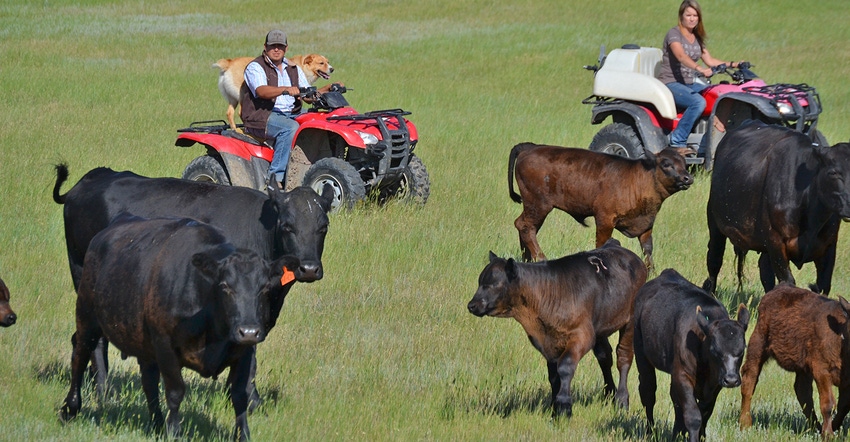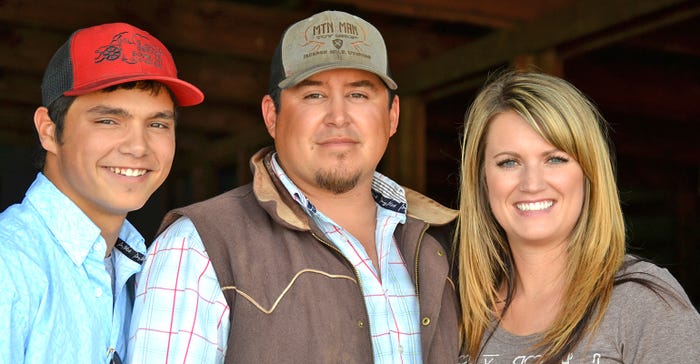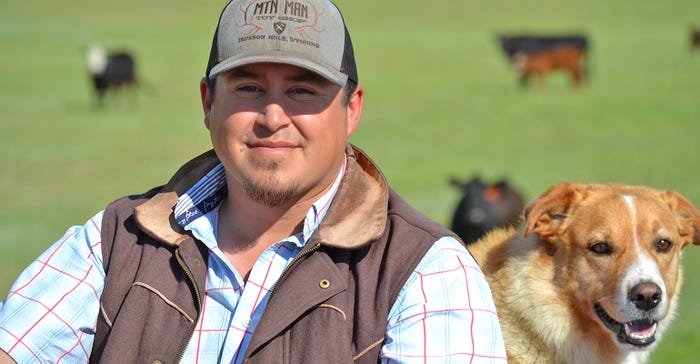March 28, 2019

Editor’s note: This is the second story in a series on ranch and farm estate planning.
By Robert Waggener
“I’m probably not telling you what you want to hear,” says Montana rancher Troy Mills toward the end of the interview. “I wouldn’t call us the best succession planners.”
When it comes to estate planning, Troy and his father, Steve Mills, are like many across the country, ranchers and farmers included. They spend time discussing the future, but they rely on the belief that things will work out instead of crafting elaborate legal documents intended to dot all the i’s.
“I guess we’re kind of old-school,” Troy says. “We haven’t formed any corporations, and we don’t have a set estate plan. Instead, we work off a handshake and a man’s word.”
Asked if he was comfortable not having a carefully laid-out plan, Troy responds, “Yes, I’m good with that. The biggest thing to me is getting along. That is as important as anything.”
Troy shared anecdotes of families investing in estate planning — only to have things fall apart due to relationship issues. And in one generation, the family farm or ranch comes to an end.
Troy is confident that’s not going to happen to his family’s ranching operations in southeast Montana.
“Having good communication and figuring out how to get along are the most important things,” stresses the 32-year-old. “If that happens, I believe that everyone will be taken care of in the right way.”
He adds, “I feel good about where we’re at. I’ve grown up understanding what Dad is, that he’s a smart guy and a good planner. I know he is taking care of things, and I trust him.”
Troy is engaged to Amanda Riter, and they have set a June 8 wedding date. In addition to raising cattle and hay, Troy also is a real estate sales associate and hunting guide. Riter works for the USDA Farm Service Agency in Broadus, Mont., and owns a small flock of sheep.

TEAMWORK: During the summer, Montana rancher Troy Mills (center) gets a helping hand from his nephew Dalton Collins, now a freshman in college. Assisting on the weekends is Mills’ fiancée, Amanda Riter, a full-time USDA employee who enjoys raising sheep on the side.

Hard work, perseverance
This trust, in part, is based on hard work and perseverance. Steve, along with other family members, figured out how to keep the ranch going when his father died at age 44 of sudden cardiac arrest.
“I was only 14 at the time,” Steve recalls of his father’s death nearly six decades ago. “My brother came home from college to help run the ranch, and my mother continued teaching. We didn’t have an estate plan when Dad died. He was planning on ranching another 30 years when he had the heart attack.”
Steve, like many aging agricultural producers in the U.S., can relate to that. He turned 71 in January and has no plans to retire anytime soon.
“I like the work. I especially like calving and lambing when the green grass is coming along,” he says.
A history of work
An outsider might wonder why Steve still enjoys raising cattle and sheep after facing additional hardships down the road.
He says, after having graduated from college with a degree in chemical engineering, “I didn’t want to move to a big city, so I came back to the ranch. I helped my brother run the place, and I also did a lot of day work for other people — fencing, farming, putting up hay, feeding cattle, things like that.”
Laboring long hours allowed him to start saving money, and in 1979 he purchased 3,000 acres of grassland. Despite facing a 21% lending rate (common during several years leading up to the farm crisis of the 1980s), things were looking up for Steve.
Troubled times
But in less than a decade, he couldn’t overcome an extreme drought, along with two severe winters in combination with soaring prime lending rates. He quickly went broke and lost the land he had worked so hard to buy. He and his wife, Cecelia, now relied heavily on the modest income she earned at a local grocery store to support themselves and three young children.
“To this day, I can’t say I like droughts and long winters,” says Steve, who once again started saving money by leasing his mother’s 960-acre ranch at a reasonable cost and helping area ranchers. Eventually, he was able to buy his mother’s land for about 25% less than market value, agreeing to pay her $15,000 a year to help fund her retirement.
“She sold it to me for a decent price — in part, to keep the ranch in the family,” says Steve, who later purchased another small piece of land from a neighbor and started acquiring shares in a grazing association.
Because his father died at such a young age, Steve purchased term life insurance. At the time, that seemed like a good idea; but since he outlived the terms of the policy, the family received no financial benefit despite the outlay of cash.
Steve says that should be an important consideration when families are considering types of life insurance and making other financial decisions.
Funding retirement
“I wish I would have opened a retirement account when I was young, even if I could only afford to contribute $50 a year. I believe everyone should have a retirement account,” he says. “And, yes, I believe it’s a good idea to have an estate plan, too.”
Ideally, that plan would be in writing — since Troy wants to someday acquire the ranch, while his two sisters chose careers outside of agriculture.
But for now, Troy and his father agree that the most important thing is to continue communicating honestly and openly — getting over hurdles that seem to face every family when it comes to ranch and farm decision-making.

GOOD BUDDIES: Newt, a border collie-Australian shepherd mix, joins Troy in the field.

Financial challenges complicate succession planning
Steve and Cecelia Mills drafted a basic will about a decade ago, but Steve admits it needs updating.
Among the many questions they face: How can two daughters who chose careers outside of agriculture receive a fair inheritance since the couple’s son, Troy, wants to continue the ranch into the next generation?
“The plan now is for Troy to buy the ranch at a reduced price, and for him to pay both sisters a certain sum each year,” Steve says. “But we haven’t finalized anything in writing.”
Troy, who turns 33 in May and is engaged to be married in June, says he is comfortable his parents don’t have a written plan yet, emphasizing that he trusts they will make the right decisions for the entire family.
Plus, he says, “I feel that I started doing my own succession planning when I was a teenager. Each year, I raised five or six head of bum calves, and Dad let me trade those for heifer calves that he owned for replacements. By the time I went to college, I had 30 head of cows.”
His father leased those cows while Troy attended college, and the small herd was paid off in full by graduation.
“I used those cattle as collateral to purchase my first land — 360 acres of nonirrigated hay ground,” says Troy, who went through the USDA Farm Service Agency’s Guaranteed Farm Loan Program to help secure the necessary financing.
Father, son have separate ranches
Troy and his father meet each morning over coffee, where key decisions are often made. They run their ranches as independent businesses.
“Dad has his ranch, and I have mine,” says Troy, who notes that they both rely on thousands of acres of leased land to make ends meet.
During these daily chats, Troy has made it clear to his father he wants to continue the family ranch.
Steve is happy that his son represents the next generation of the ranch, and he hopes he can help make things work. But they know they will face challenges as Steve, despite being six years past the normal retirement age of 65, is still paying off debt while Troy is incurring debt.
Treating children equitably an important consideration
When it comes to ranch and farm estate planning, one of the most difficult decisions many parents face is how to treat children fairly when one or more live elsewhere, while another son or daughter has become an important part of the operation.

PLAN EARLY: Laramie, Wyo., attorney Don Prehoda says it’s important for ranch and farm families to have open and honest discussions when it comes to estate planning. Ideally these discussions should start soon rather than later because of life’s uncertainties.

“So the issue becomes how to address that particular child’s need to be able to continue to run the ranch, while at the same time providing a reasonable, if not equal, entitlement to the other children,” says Don Prehoda, a Laramie, Wyo., attorney who has helped many agricultural producers in Wyoming and Colorado with estate planning since the 1970s.
“Such decision-making is most difficult for parents who are struggling to make a living themselves, as the bulk of their assets are tied up in the ranching operation,” he says.
In cases like this, many parents think that the best thing to do is to make the resident child the manager of the ranch upon their death. This child may have majority interest in the corporation, while the nonresident children may have a minority interest, including receiving a certain percentage of profits.
Sibling relations important in succession planning
This scenario can work for some siblings, says Prehoda, but it often leads to conflict.
“A lot of it has to do with the quality of the sibling relationships and what is important to the nonresident children in terms of preservation of the ranch, in addition to the mutual respect all of the children have for one another,” he says.
Prehoda questions: Will nonresident children accept receiving less for their partial ownership of the farm or ranch if the resident sibling is scraping by financially?
He says it’s important for parents to address such questions when estate planning.
“It’s a discussion that parents can have with their advisers in order to rationalize what a fair way is to address estate planning issues, without necessarily adopting a philosophy that everything has to be equal.”
This is one of the reasons why it’s important for families to begin planning early. For example, Prehoda says, “Creating certain kinds of life insurance policies would give the nonresident children an opportunity to inherit something upon the death of their parents, and it would also reward the resident child who has devoted his or her efforts toward sustaining the ranch.”
You May Also Like




